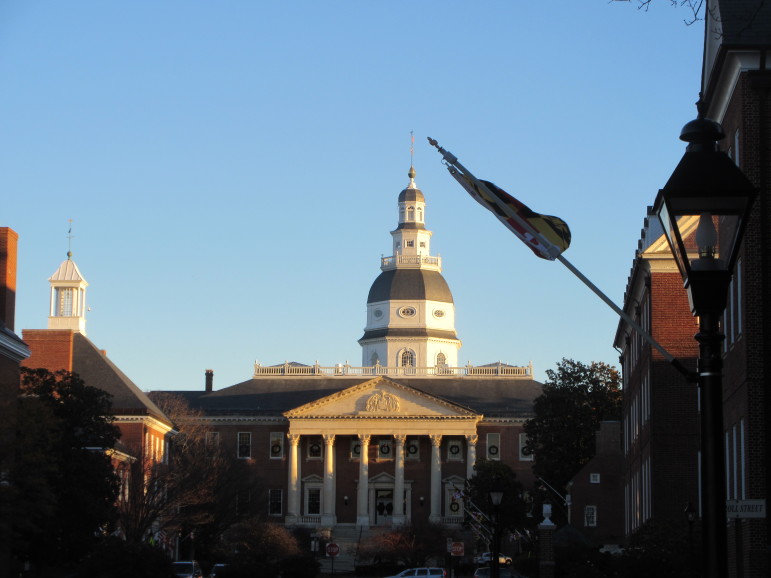By Len Lazarick
This year’s 90-day legislative session is set to get off to a faster start when it begins Jan. 13 with over 1,200 bills already being drafted for introduction.
The opening will also be more contentious as the Maryland Constitution requires the lawmakers to take up bills the governor has vetoed as the first order of business.
According to the legislature’s bill drafting office, there are over 1200 requests for legislation from members of the House and Senate. Already 179 bills have been pre-filed (113 in the Senate, 66 in the House).
The legislature’s staff also expects the Hogan administration to request a couple hundred bills of its own, most of which are fine tuning of existing laws by various departments, now under the full control of Gov. Larry Hogan’s appointees.
This is not necessarily a record number, but it does reflect that the office holders are in the second year of a four-year term.
“We have a lot of freshmen ready to spread their wings,” Senate Minority Leader J.B. Jennings told county officials last month. A third of the legislature was new to their jobs, but they now know how a bill gets passed. “They’re going to come out fighting for the issues they care about,” Jennings says.
Typically, there are 2,500 to 2,600 bills introduced. More than half die in committee, and about 700 are eventually enacted, many of those on routine matters that receive overwhelming majorities in both houses.
Veto overridees
At the top of the veto override list is the bill to tax Internet travel sites and travel agents based on the full price of hotel rooms, rather than the discounted price they pay the hotels.
Pressured from businesses on both sides, Hogan said he vetoed the measure because there is a pending lawsuit by Comptroller Peter Franchot to collect the tax from the Internet sites based on the full price. Senate President Mike Miller believes he has the three-fifths majority needed to override the governor’s veto. But the vote was much closer in the House of Delegates. Hogan also vetoed a Howard County version of the bill affecting the local hotel tax.
Hogan also vetoed three pieces of legislation related to criminal justice. One allowed felons to vote after they are released even if they are still on probation, and another would have decriminalized possession of marijuana paraphernalia; the legislature had already eliminated criminal penalties for possession of small amounts of marijuana.
Another bill blocked by Hogan made it harder for police to seize assets from people who have been arrested or accused of drug trafficking. The governor sided with prosecutors and police who objected to the bill, but lawmakers said the powers to confiscate had been abused by police. The bill passed both houses with veto-proof majorities.






Re felon voting bill: If you aren’t willing to follow the law
yourself, then you can’t demand a role in making the law for everyone else,
which is what you do when you vote. The
right to vote can be restored to felons, but it should be done carefully, on a
case-by-case basis after a person has shown that he or she has really turned
over a new leaf, not automatically on the day someone walks out of prison — let alone when the person has not served the parole/probation part of the sentence! After all, the unfortunate truth is that most
people who walk out of prison will be walking back in. Read more about this issue on our website
here [ http://www.ceousa.org/voting/voting-news/felon-voting/538-answering-the-challenges-to-felon-disenfranchisement ] and our congressional testimony here: [ http://judiciary.house.gov/_files/hearings/pdf/Clegg100316.pdf
].